Worms (helminths) are one of those problems that parents face around the world. This is a really serious problem that needs to be addressed quickly. Worms are worms from the group of parasites. They parasitize the human body and disrupt the work of organs and systems. Children are more likely to have pinworms and roundworms.
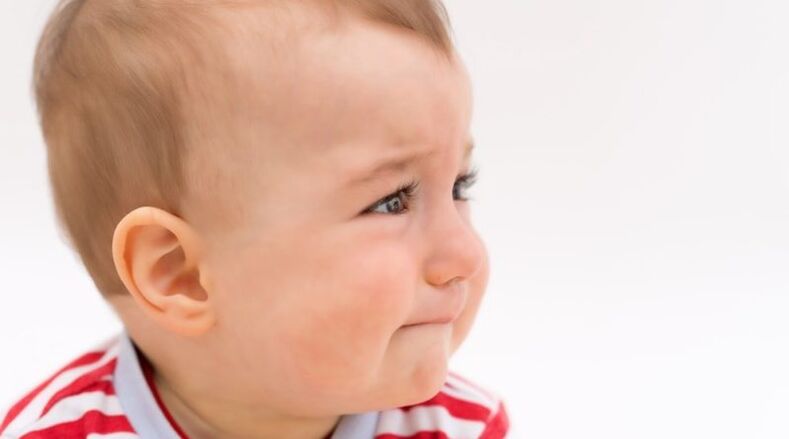
Whenever symptoms of helminthiasis appear, consult a doctor immediately for effective therapy.
Causes of worm infection in children
Because of their natural mobility and curiosity, children often come into contact with the world around them and everything that inhabits it. The list of common causes of infection is quite impressive.
Contact with contaminated surfaces
Worms and their eggs can survive up to two weeks without food.
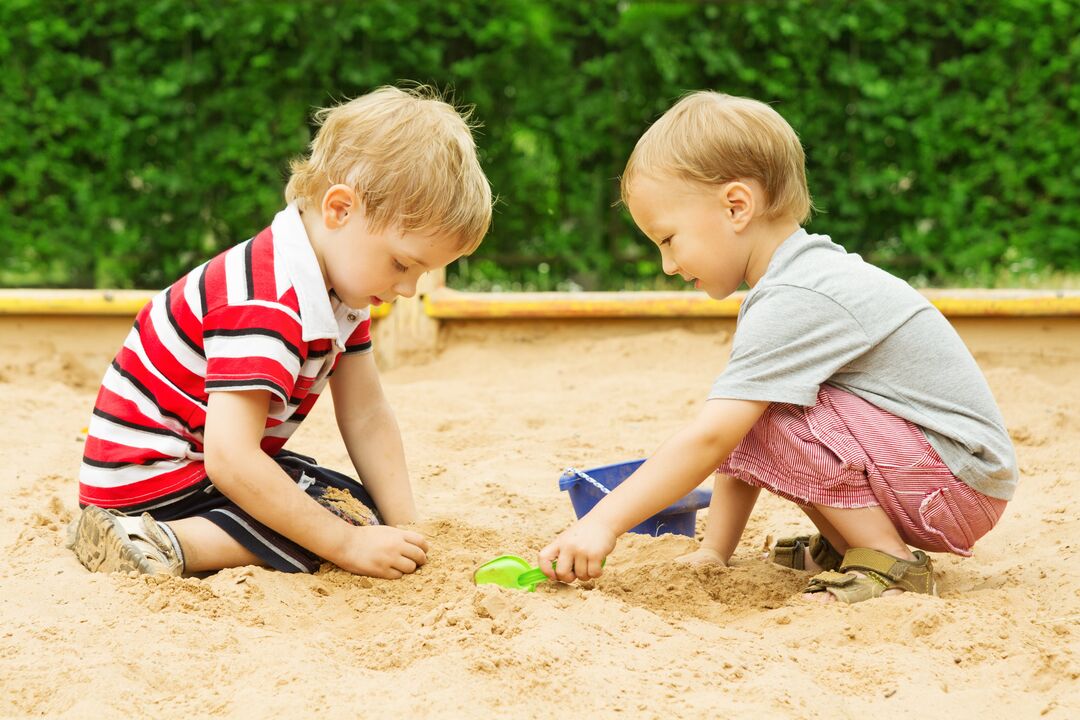
The most common places where a child can become infected with worms are:
- playground or outdoor soil containing worms or eggs;
- contact with animals or contact with their feces, infected worms.
Consuming food or water contaminated with worms
It is very important to wash vegetables and fruits well before eating, because they contain worm eggs.
Raw or undercooked foods also carry a risk of worm infection. Contaminated water is a very common source of contamination.
Contact mode
Worms are transmitted to humans from humans. Pinworms are most commonly spread this way, so there is a very high risk of helminth infection in children’s groups.
Insect bites
Mosquitoes are often carriers of the infection.
The presence of worms in the mother
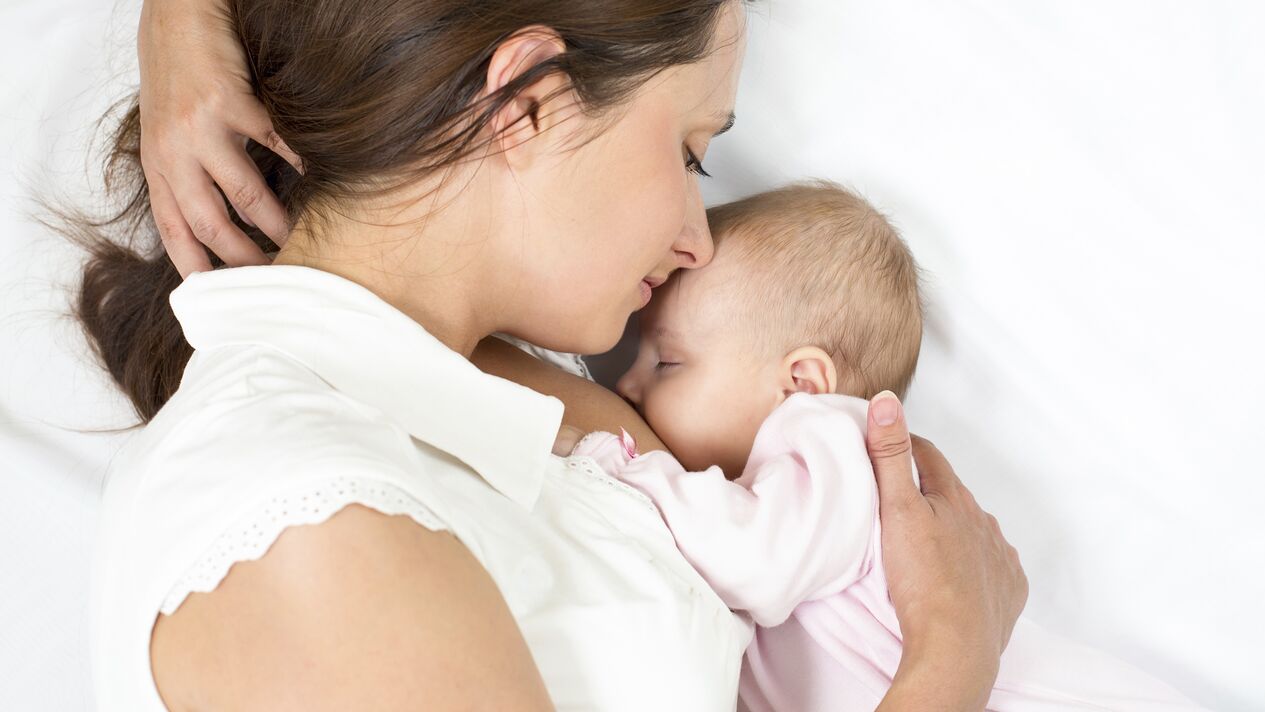
It is possible to infect a child even during pregnancy, when the infection occurs in the uterus. Helminth larvae enter the bloodstream to the fetus through the placenta or during childbirth through the birth canal. Parasite eggs come to the child from the surface of the nipple, toys and other objects.
Worm infestations are more common in children than in adults. Worms are not as common in children under the age of one as in children aged 1. 5 to 3, who actively explore the world, taste various objects and become infected much more often.
Helminthiasis is dangerous at any age. Fungi in a one-year-old child are a special case, because the baby's body has not yet matured, the immune system is weakened, and the presence of worms in children can cause frequent acute respiratory diseases, predisposition to allergies and diseases. internal organs.
The presence of worms in babies is a big health problem, because worms feed on substances necessary for the growth and complete development of the baby.
Symptoms of worms in children
The signs of worms in children depend on the habitat and activity of the worms in the child's body. The most common worms - roundworms in babies, pinworms, tapeworms - live in the gut, but some of the certain parasites can move from organ to organ. For example, roundworms first enter the stomach and from there enter the lungs or liver with blood. They grow there for three weeks and then re-enter the intestines or stomach.
Pinworms often inhabit the anus, causing severe itching. In girls, they can be found in the genitals, causing vulvovaginitis.
Opisthorchis parasites often live in the liver and pancreas. Echinococcus can affect muscles and bones, chains even penetrate the brain. Also, some types of helminths are found in the respiratory organs, causing persistent cough.
How to understand that a child has worms?
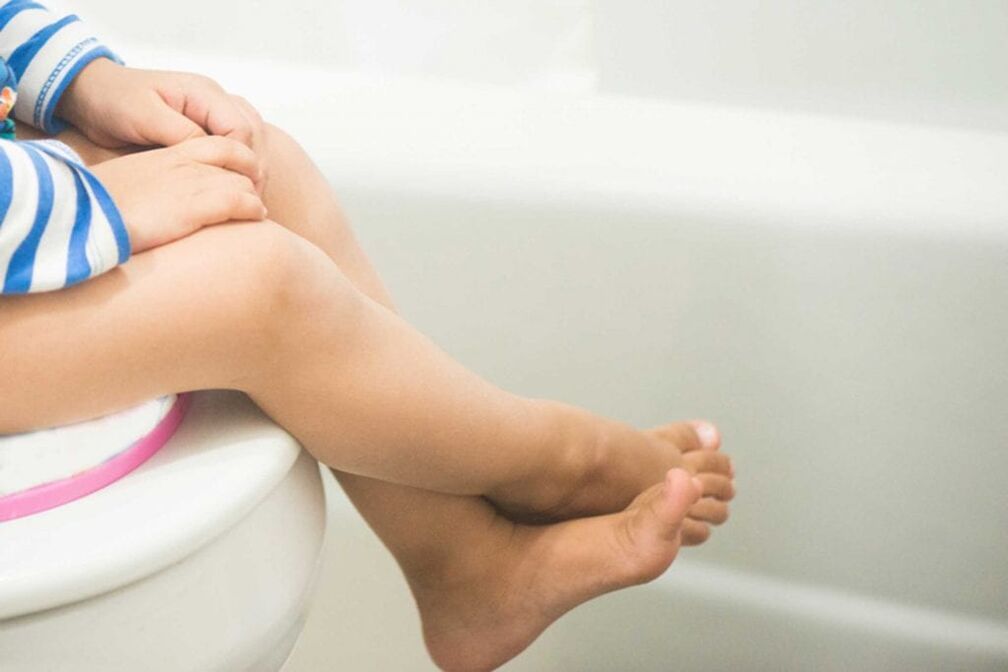
According to the location of the worm in children, the following signs of the presence of worms in a child may appear:
- Prison.Large worms can block the intestinal lumen, causing stool flow disorders. Imprisonment may last longer than 2 days.
- Diarrhea.Some parasites secrete a special substance that stimulates the body to excrete undigested food particles and large amounts of water.
- Irritable bowel syndrome.Helminths can cause inflammation in the intestines. This causes malabsorption of nutrients and irregular bowel movements.
- Flatulence.Some types of helminths cause fermentation processes in the small intestine, which causes excessive gas formation. If you do not get rid of the worm in time, the bloating can last for months.
- Pain in joints, muscles.This happens when parasites invade a joint or the thickness of muscle tissue and destroy it.
- Allergy.Worm waste products can activate special cells in the body that are responsible for the occurrence of allergic reactions.
- Worms can cause skin diseases.Acne, urticaria, papillomas and diathesis appear. Sometimes worm infection leads to increased fragility of hair and nails.
- Anemia.Some types of worms are able to cling to the intestinal walls and receive from them not only nutrients but also blood. Therefore, the child develops anemia, which is diagnosed by a clinical blood test.
- Weight change.As a rule, as a result of worm infection, body weight drops sharply because worms absorb more nutrients that enter the body with food. Infection with helminths often causes loss of appetite due to the entry of toxins into the bloodstream. But often a child experiences weight gain - it is a defensive reaction to the spread of worms.
- Nervous system disorders.The child is moody and irritable. Depression can develop in school children and adolescents with helminthiasis.
- Sleep disorders.When a child wakes up every night, it may indicate a process of infection. At night, some types of worms leave the body through the anus, which is accompanied by severe itching, which prevents the baby from sleeping.
- Jaundice.More common in tapeworm infections.
- Chronic fatigue syndrome.The child is constantly weak and tired quickly due to lack of nutrients in the body. Memory problems develop, emotional stress and drowsiness develop.
- Immune disorders.Due to helminthiasis, children often develop diseases of viral genesis, and an allergic reaction to ordinary food occurs. Dysbiosis, colitis often develop in the intestines, on the face - rash, diathesis and herpes.
- Breathing problems.They occur when worm larvae attack the lungs. In worms, children have a cough and body temperature rises. Bronchial asthma is an extremely dangerous complication of worm invasion.
Numerous symptoms of worms in children significantly complicate the diagnosis. Therefore, parents should remember the usual preventive examinations, including tests to determine the presence of pinworms and ascaris.
Common types of worms in children
- Pinwormscause itching around the anus, painful urination.
- Ascaris.With ascariasis diarrhea is observed, worms are visible in the child's feces with the naked eye. Fever and dry cough are detected within 4 to 16 days after contact with roundworm eggs.
- Hookworm.The child develops a cough, wheezing occurs. In case of severe infection, anemia and chronic fatigue develop.
- Tapeworms.They enter the body with contaminated food and water. Swallowed worms come out of the baby's intestines, forming cysts in the tissues and organs of the body.
How to recognize earthworms in a child?
Abdominal pain, lethargy and diarrhea may be symptoms of other diseases. To make sure that there are signs of helminthiasis, it is necessary to do some tests for worms in children:
1. Blood test for worms in children.
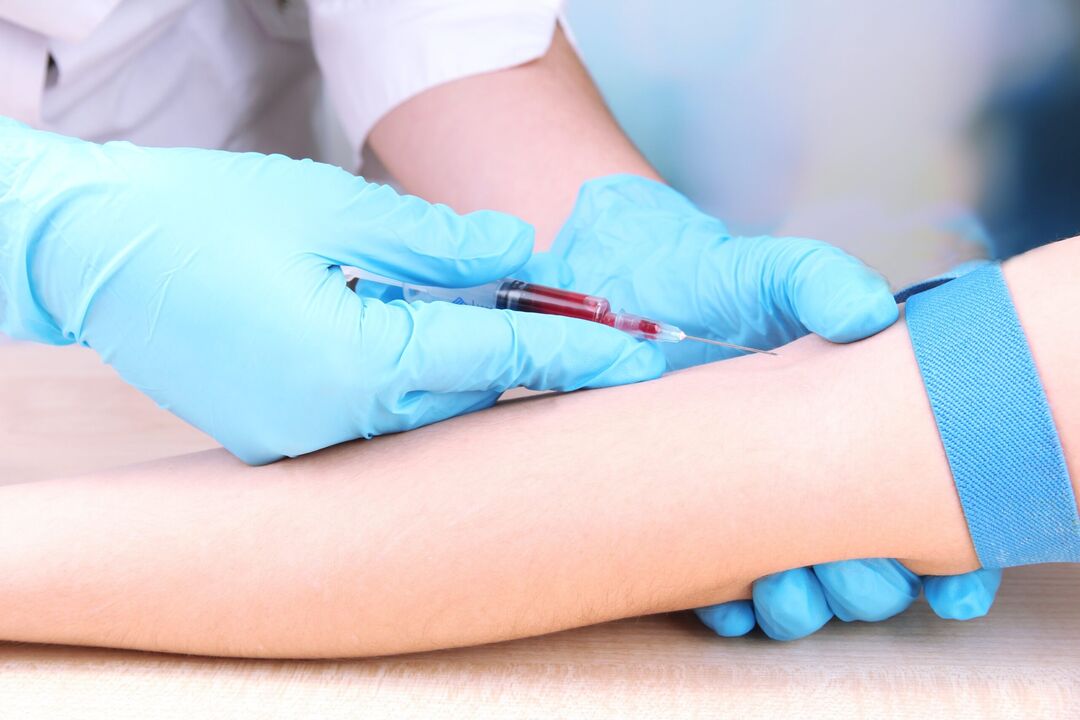
Enzyme immunoassay for worms is prescribed. As a result of the study, specific antibodies and antigens were identified, indicating the presence of worms in the body. This analysis will show the type of worms present, their number and ability to reproduce.
To diagnose worms, a general blood test is performed that allows you to identify anemia or signs of inflammation in the body.
2. An accurate result is achieved using a histological coprogram
It consists of a microscopic examination of the feces. Thanks to this study, it is possible to clearly identify parts of the worm's body, their eggs. As a result, helminthiasis is diagnosed, as well as the type of worm.
3. X-ray and other diagnostic measures
When there is a suspicion of the presence of worms in the lungs, an X-ray examination is prescribed. In addition, a sputum test is performed. Computed tomography or ultrasound is done to identify parasites in the liver, brain or kidneys.
How to get rid of worms in children?
To effectively treat worms in a child, consult a parasitologist and follow his recommendations.
Self-medication with anthelmintics for children is unacceptable because they are quite toxic. Also remember that the invasion of different types of worms requires individualized treatments that are structured according to the life cycle of the worm. When calculating the dose, the specialist should take into account the age and body weight of the patient.
Your doctor may prescribe a worm medicine, which is available as a syrup for young children or as tablets for older children.
Deworming tablets for children usually kill worms without injuring the owner, in this case the child. The treatment period is usually short and does not last longer than a few days. Sometimes one dose is enough to get rid of worms.
But many drugs are ineffective against larvae and worm eggs. In addition, there is a fairly high risk of recurrent pinworms self-infection in young children. Therefore, after 2-3 weeks, the course of treatment should be repeated.
If a child has worms, in parallel with etiotropic drugs, a specialist may recommend a choleretic if worms are suspected to live in the gallbladder. Laxatives are often prescribed to quickly remove helminths and sorbents to absorb toxins. Antihistamines can reduce the manifestation of allergies and improve the health of a small patient.
Treatment of helminthiasis in newborns is very difficult. Almost all anthelmintics are not used for children under the age of two because they are very toxic and have many side effects. Harm to the body caused by the consumption of such drugs can be significant even with the slightest overdose. Therefore, self-treatment of helminthiasis in children of the year is absolutely forbidden.
With any suspicion of worms in an infant, it is necessary to contact specialists who will determine the degree of infection and develop a treatment regimen that works in this case. In some situations, a doctor may even suggest delaying treatment for a short time so that the child can grow up.
Do not rely on over-the-counter medications as they may not be suitable for young children and young children. Always visit your doctor and adhere to the dosage and treatment regimen to keep your child worm-free. It is recommended to use anthelmintic tablets for children every six months for prophylaxis. Talk to your doctor about what to give your baby for worm prevention, the specialist will determine the dose and frequency of preventive deworming.
Folk remedies for earthworms for children
In addition to medication, treating worms in children with folk remedies will help alleviate the worms caused by worms in the body. A natural remedy for worms will not necessarily get rid of worms in your child, but it will help treat and prevent infection.
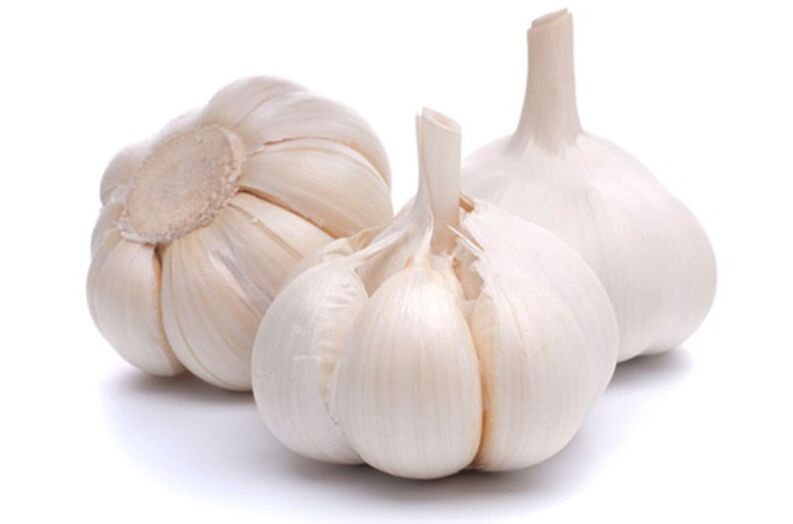
Consider folk remedies:
- Garlicis a natural anthelmintic for children. It is known to be effective against parasitic worms. Raw garlic contains amino acids, sulfur, which will help kill and rid the body of parasites. Consuming three cloves of raw garlic on an empty stomach will help with complex deworming.
- Papaya- the best medicine for health. Immature papaya has an enzyme called papain, which acts as an anthelmintic to kill worms in the gut. In addition, papaya seeds are used to expel worms from the stomach. Grind papaya seeds and stir a tablespoon of the mixture in warm milk or water. Ask your child to have a drink in the morning, three days in a row. Mix one tablespoon of raw papaya and one tablespoon of honey in warm milk or water. Drinking this drink on an empty stomach helps to expel intestinal worms.
- Pumpkin seedshelp expel intestinal parasites. The seeds contain cucurbitacin, which paralyzes pests and makes it difficult for them to survive in the body. Offer your child a teaspoon of pumpkin seeds with honey. Boil a spoonful of peeled and crushed pumpkin seeds in three glasses of water. Leave the drink to stand for half an hour. Offer to the child when the liquid has cooled.
- Chinese bitter gourd.Although it has a slightly sour taste, it is very effective in the fight against intestinal worms. Mix a cup of bitter gourd juice with water and honey and feed the child twice a day.
- Carrotscontains vitamin A, which boosts immunity and allows the body to fight intestinal worms before completely colonizing the body. Consuming carrots on an empty stomach will help neutralize persistent parasites in the body and prevent re-infection.
- Turmericis a natural antiseptic and helps eliminate all types of intestinal worms. You need a glass of warm water mixed with one tablespoon of turmeric, give the child worms once a day for five days.
- Coconuthas strong antiparasitic properties, which makes it effective in treating worms. You can use fruit or oil to kill worms. Have your child eat a tablespoon of ground coconut daily with breakfast. Continue to use this home remedy for a week. Concentrated coconut oil contains medium chain triglycerides that will help remove worms from your baby’s body. Taking four to six teaspoons of coconut oil every morning for a week will strengthen the immunity and prevent the worm infestation from recurring.
- Carnationdestroys existing intestinal worms and their eggs and also prevents future infections. Add a teaspoon of cloves to a glass of boiling water and let stand for 20 minutes. Drink this water three times a week to avoid contamination.
- Onion juicehelps fight roundworms. Take the onion and chop it well, and drain the juice from the onion mixture. Consume it in the morning on an empty stomach.
- Indian lilacpossesses antiparasitic properties and can destroy various intestinal worms. Mix the powdered leaves in warm milk and honey. Offer to your child twice a week.
Traditional home remedies can help alleviate the infection, but they cannot completely cure it. They are not a substitute for prescription drugs.
Prevention of worms in children
Children who play in mud, sand, grass and other open areas are more likely to be infected with worms. Although worms can be eliminated by deworming, it is best to prevent infection as much as possible.
Hygiene is critical here. Teach your children basic hygiene habits and educate them about how worms enter their bodies and make them sick.
Worm prevention includes the following actions:
- Do not give children raw water from springs or wells. This water must be filtered and boiled before use.
- After contact with the ground, hands should be washed well with soap.
- It is also worth washing the vegetables, herbs, fruits and berries that the child and other family members eat.
- It is important to thoroughly heat meat, fish and poultry.
- Do not offer your child dried, salted or raw foods that have not been cooked.
- Be sure to take a shower after bathing in water. Do not allow pets to lick your child's hands or face as their tongue may contain worm eggs.
- Wash your hands thoroughly after each contact with animals.
These precautions do not rule out the possibility of helminth infection, but minimize it.



























